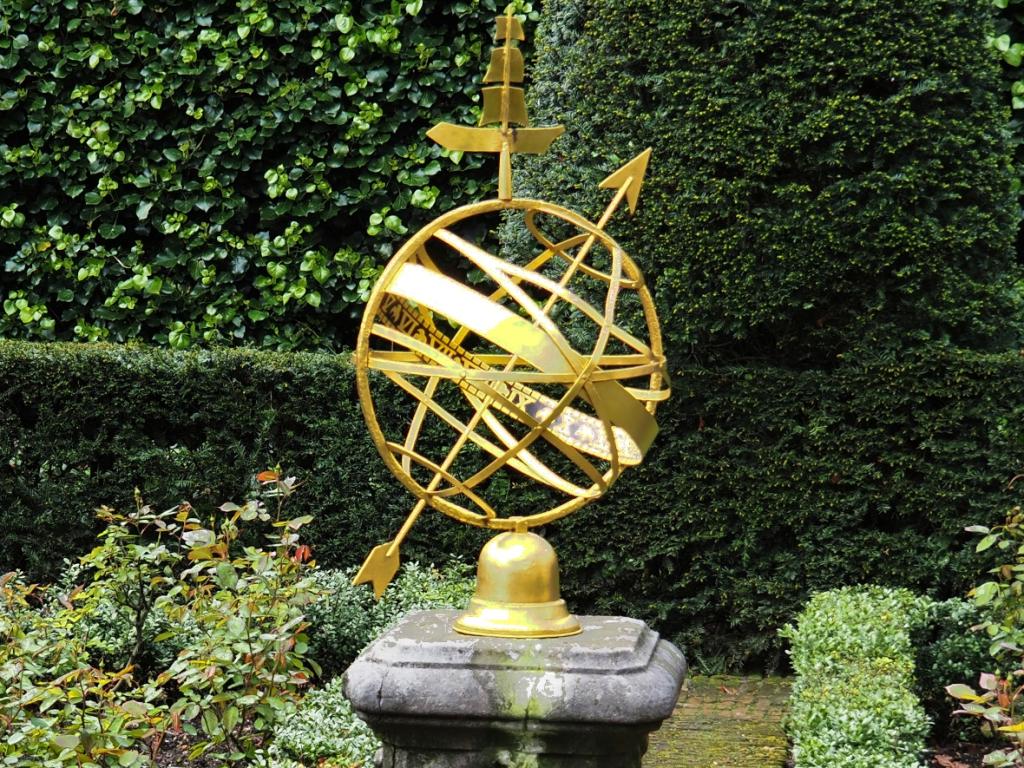The fundamentalist Christian group Answers In Genesis had a one-line post on Threads earlier this week. It said simply “a biblical worldview applies to every area of life.”
Most of the people who responded either noted the absurdity of reading the Bible literally or pointed out how no one follows the Bible completely and consistently, even those who claim they do.
I took a slightly different approach, and I want to expand on it here. I said “yes, that’s what a worldview is. The real question is whether a biblical worldview aligns with facts. And that answer is clearly no.”
Misreading myth as history
Answers In Genesis makes the fundamental (yes, that was on purpose) error of assuming that Genesis is history and not myth. The people who wrote Genesis, like the people who wrote down sacred stories around the world, weren’t trying to provide a factual record of what happened. They didn’t know – they couldn’t know. Rather, they were telling stories to help themselves understand who they are, how they came to be, and how they should live.
Until the modern era, even Christians understood that.
But with the rise of science and the Enlightenment, people were able to determine factual answers to questions that previously could only be answered mythically (again, myths aren’t “made up stories” and they aren’t proto-science. Myths are stories that provide meaning). And that led to the idea that the only true story is a historical story – an idea that’s still popular today. So if the Bible wasn’t literally true then it was meaningless, and since the Bible was meaningful to them they assumed it had to be literally true, despite evidence to the contrary.
Fundamentalism isn’t just an error, it’s a needless error.
And that’s all I want to say about that. Few if any readers of Under the Ancient Oaks have any doubts about this and it does us no good to engage in debates about the particulars of a religion we don’t follow.
Instead, I want to discuss the matter of worldview: what it is, why everyone has one, and why most people need to examine theirs more carefully.
Worldview: an internal model of the world and how it works
The term “worldview” comes to us from the German Weltanschauung. Wikipedia’s definition is fairly good: “the fundamental cognitive orientation of an individual or society encompassing the whole of the individual’s or society’s knowledge, culture, and point of view.”
A worldview is the output of metaphysics. It’s your internal model of the universe, your foundational assumptions about the world and the way it works.
Everyone has a worldview. It may be very simple or very complex. It may model reality very well or it may be very wrong. It may be carefully considered and developed… but it’s probably not.
We begin forming a worldview when we’re very young, when we absorb everything we see and hear but do not yet have a brain mature enough to discern what’s true and what’s not, nor the knowledge by which to evaluate claims of truth.
The Jesuits have a saying “give me the boy until he is seven and I will give you the man.” What we are explicitly taught is part of it, but the stories we hear and read and tell are most important. Nursery rhymes, fairy tales, and ancient myths. What we see on TV and in movies. What our parents and other adults teach us, especially what they teach us by their actions.
Gradually, we develop our model of the world and our place in it all.
But how accurate is our model?
More important than you think
Let’s be honest: most people don’t care how accurate their worldview is. It’s what they were taught and they’re spending all their time trying to get by in a world that’s set up by the rich and powerful, for the rich and powerful. “It’s just common sense” means “I’ve always been told this was true and reconsidering it is too much work.”
That doesn’t mean it’s not important. Your foundational beliefs determine what you think is and isn’t possible – and thus what you will or won’t try to accomplish. They tell you what you should accept, what you should tolerate, and what you should oppose – and thus how you will interact with people who are different from you. They form the basis for your answers to the Big Questions of Life: who are you, where you come from, how you should live, and what happens after death.
It’s important that our internal model of the universe correspond to reality as closely as possible. No one benefits from living a life based on misinformation, myths assumed to be history, or outright lies.
The two major worldviews of our time
Worldviews can be deep and complex, but they begin with high-level assumptions about things that cannot be proved or disproved. In our time, the two main competing high-level worldviews are materialism and animism.
Materialism is the idea that there is only the material world: only matter and energy and the products of their interaction. There are no such things as spirits or souls. Consciousness is the product of brain activity and when the brain dies, consciousness – the essence of who we are – dies with it. There is only this one life and life after death – whether in an afterlife or through reincarnation – is simply not possible.
It’s important to note that materialism is not a finding of the scientific method. Rather, materialism is an assumption many scientists make about things that science is unable to definitively answer.
Animism is the idea that whatever it is that animates you and me also animates the birds and squirrels, the flowers and trees, the mountains and rivers. Everything is not a thing but a person filled with spirit and consciousness. And since many such persons have consciousness but do not have brains, consciousness cannot be a product of brain activity.
Perhaps consciousness is part of what it means to be a spirit (who temporarily has a body). Or perhaps, as panpsychism suggests, it is consciousness and not matter that are the primary building blocks of the universe.
The longer I live, the longer I observe the world, and the longer I think and meditate, the more convinced I am that animism is the best foundation we have for building an accurate and helpful model of the universe.
Worldviews based on bad assumptions are harmful
And what of the “biblical worldview” that Answers In Genesis refers to? Geology and astrophysics clearly demonstrate that the creation story (actually, two stories) of Genesis cannot be literally true. Biology clearly shows that humans and other animals were not created in our current form 6000 years ago.
Fundamentalists claim their foundational assumption (“presupposition” is the word they like to use) is that the Bible is literally true and all other evidence must be interpreted in that light, even though the fact that the Bible isn’t literally true is obvious, and even Christians understood that until relatively recently (and many still do).
These are the metaphysical knots they twist themselves into because they fear that if they don’t believe the “right” things they’ll end up in hell.
Fear is a terrible way to live your life.
Examine your worldview!
But before you get to feeling too smug, you probably should take a good hard look at your own worldview.
Does it align with known facts? Science doesn’t have all the answers, but the answers it has are very reliable. We live in a time and place where expertise is devalued and even ridiculed, where “do your own research” means “watch some YouTube videos by conspiracy theorists who tell you what you want to hear.”
Is it open to new evidence and new experiences? Or does it dismiss anything that indicates what you’ve always believed might be wrong? Humans don’t like to be told we’re wrong. When faced with evidence that what we believe isn’t correct, the vast majority of us will double down on our old beliefs.
I can’t understand that. If I’m wrong about something, I want to understand why I’m wrong and figure out where I went wrong, so I can be right going forward.
Does it allow for complexity, multiplicity, and variation, or is it black and white? In both physics and biology, we often see that what is true in the middle is false on the edges. A worldview that tries to put everything in neat little boxes is almost certainly wrong.
Does it allow for randomness? Not everything has a deep meaning.
Mainly, have you separated the things you believe because you truly believe they’re true from the things you believe because you’ve always believed them? Or because you were told you had to believe them?
Or because you’re afraid to not believe them?
Examining your worldview is a dangerous thing
Answers In Genesis is right about one thing: your worldview applies in every area of your life. If something is inconsistent with your worldview, that’s a sign that either your worldview needs to change to accommodate it, or you don’t really believe what you say you believe.
And while lying to other people is bad, lying to yourself is far worse.
Socrates said “the unexamined life is not worth living.” Talking about things like that got him executed. Examining your worldview is a dangerous thing.
And it’s also a necessary thing.
Blessings and good luck as you do your best to examine your model of the world, keep what is true and helpful, and discard what isn’t.
















